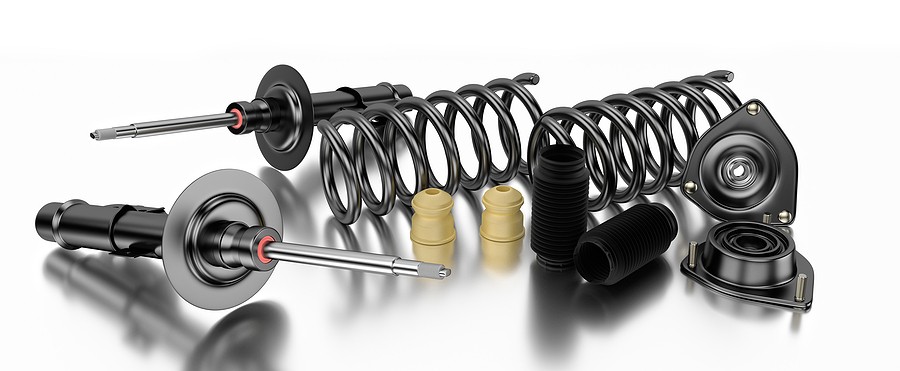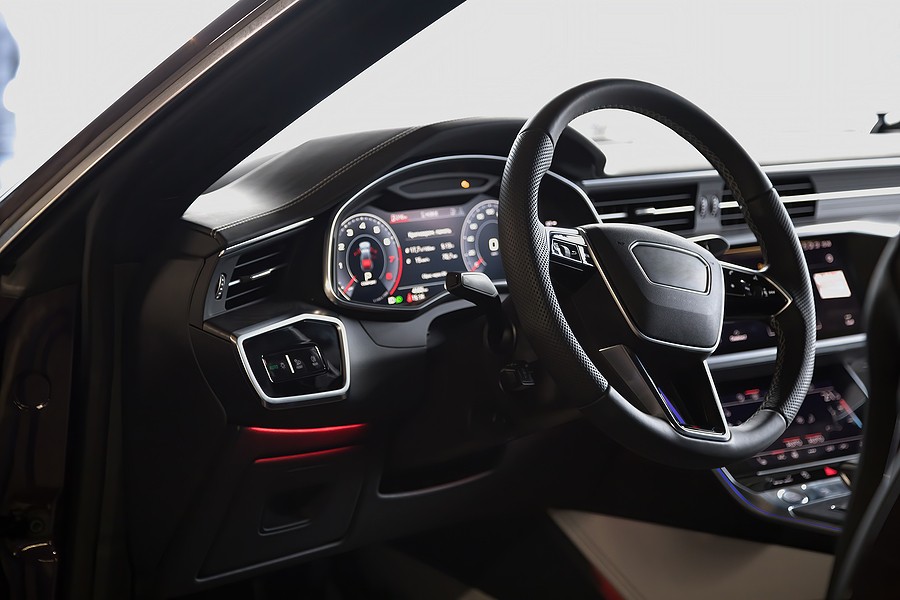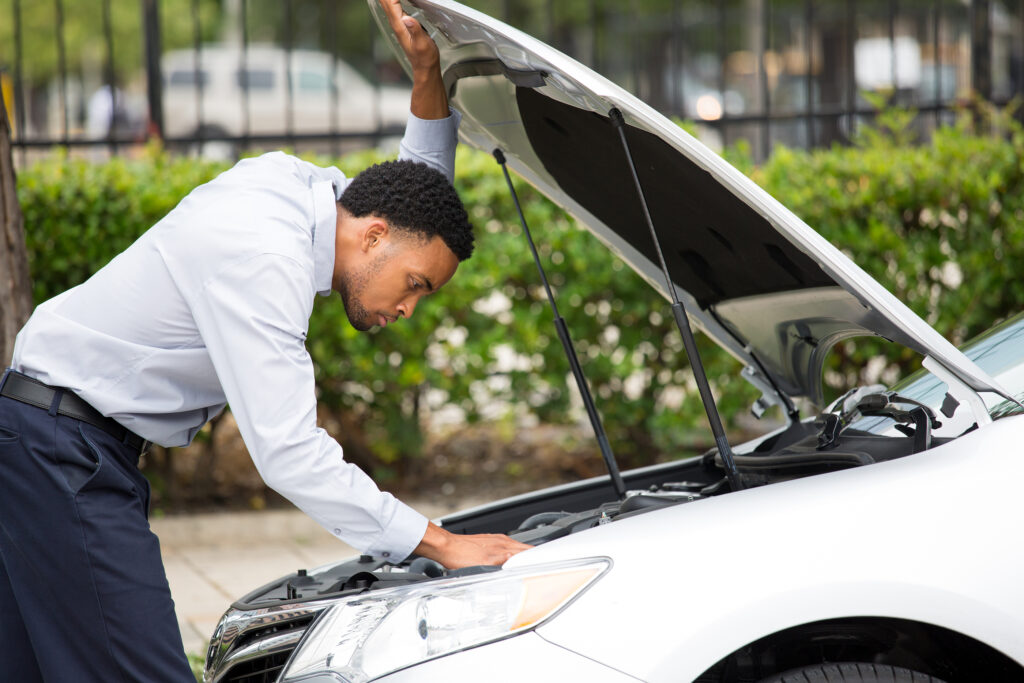If you're wondering “how to know if your car suspension needs repairs,” below is what you should be looking for:
- Uneven tire wear
- Excessive bouncing
- Pulling turns
- Rough ride
- Visible damages or corrosion
- Clunking noises
- Fluid leaks
- Steering wheel vibration
- Nose dives during braking
- High mileage
Every component within your vehicle must be taken care of properly. Whenever you notice any potential problem with any component color, you must address it before it evolves, impacting further components and potentially your safety.
The suspension system, like any other system, is not problem-free. There might be a point where you have to deal with some significant issues that you must address immediately before you deal with safety problems.
This article highlights the ten common indications that your suspension needs to be repaired. Whenever you notice any of them, you have to consult your mechanic and have him perform a thorough inspection to identify the role culprit and fix the problem.
How do you know if your car's suspension needs repairs?
If you suspect that your suspension system requires repair, there are some things you could look for. These things are based on the most commonly reported major problems on this system, and automotive experts recommend that you go through the list before you even reach the mechanic to save yourself time and effort, and potentially money:
1. Uneven tire wear
The tire wear is the first thing you must check to confirm whether you have suspension problems. This might be strange to many inexperienced drivers. However, when the suspension is not even, it impacts the tires because they are the first ones interacting with their own.
If the pension is not set up to how the vehicle was manufactured, the carload will go towards one side more than the other. That's why the tires on that side will suffer from this higher load and wear out more than the others on the other side.
Remember that although the uneven tire wear might be related to issues with the suspension, it could be another problem related to the tire itself and maybe an issue with the alignment. Therefore, you cannot immediately assume that you have to replace a major issue in the suspension until you confirm with your mechanic.
2. Excessive bouncing
The main task of your vehicle suspension is to absorb any vehicle shocks and impacts. That's why you shouldn't experience significant bouncing if you have a good suspension system when you drive on a bump or any road path hole.
However, if other external factors impact the suspension, you'll immediately notice your car bouncing more than it should. That is not a good thing because this balancing might impact other components that might be more sensitive and require higher repair costs.

3. Pulling turns
If you've ever tried to turn using your vehicle and realized that the vehicle is pulling towards one side more than the other came out, you might have a problem with the suspension. That's why you must address it before things evolve and become more complicated.
This pulling when turning your car might also be related to other problems. Therefore, you need to check on the suspension system, and also you have to take a look at the steering wheel and potentially the alignment.
4. Rough ride
As we indicated before, the suspension is responsible for making your drive as smooth as possible; if not, you must check on the different components of the suspension system. You shouldn't feel any shocks in the car that in a way that impacts your driving comfort. If that's not the case, your suspension might be an issue.

5. Visible damages or corrosion
If you can still not detect any problems in your suspension by monitoring the vehicle's behavior, you could check on potential visible damages. For example, try to visually inspect any potential corrosion or damage within the suspension system components.
Sometimes, the corrosion might be minor, which might not be a clear problem and might not be translated into vehicle performance. That's why it's the best timing for you to solve the problem before it gets more complicated and you start noticing changes in vehicle behavior.
Typically, suppose you could detect the problems early. In that case, you shouldn't worry about the repair costs because they will be much lower than waiting until the problem evolves and impacts other components.
6. Clunking noises
If you decide to ignore the minor problems in your suspension for a longer time, things can get a little bit louder. In other words, you'll notice your vehicle making squealing noises, which might indicate internal problems with loose components.
Generally, automotive experts recommend that you never ignore any weird vehicle sounds. These can be an indication that something is going on internally. Regardless of where it's coming from, that is the problem because the more you wait, the more it gets complicated.

7. Fluid leaks
Interestingly, many people indicated that when their vehicle has measures of function system problems, they notice some weird fluid leaks. These could be related to the hydraulic system within the suspension system and might even result in further complications that might cost you the entire vehicle.
8. Steering wheel vibration
Another potential implication of a failing suspension is steering wheel vibration. This might indicate that your vehicle cannot absorb all the car road shocks and that you must immediately check on what's happening before dealing with safety issues.
Steering wheel vibration is another general problem that might be linked to other issues. Before you even assume it's a suspension problem, talk to your mechanic and have him look at this steering wheel first.

9. Nose dives during braking
Another thing you might experience as your vehicle has a suspension problem is nose-diving when trying to break. This should not be the case, and that might indicate a severe issue in the suspension, especially in the front part of the vehicle that appeared.
10. High mileage
Finally, even if you're unable to identify any potential visual, even vehicle performance implications indicating that your vehicle needs suspension repair, sometimes you might want to look at the vehicle's age and mileage.
Typically, if your car approaches a very high mileage, you'll have higher chances of getting rusting components within the stringent, which might translate into a need for suspension repairs.

How much does it cost to fix the vehicle suspension?
It can be very hard to tell how much you expect exactly for fixing your suspension system because it depends heavily on what components are impacted and where you're getting the job done. However, you might expect to pay between $200 and $1500.
Usually, if repairs are very minor, like those related to minor struts or even small component replacements, they shouldn't cost you more than $500.
However, if you're getting to more moderate problems like those impacting the control arms, you might expect to pay up to $1000. Finally, if you're dealing with major suspension problems, you can expect to pay up to $ 1,500, depending on your vehicle type.
Remember that this only discusses the parts replacements, but the labor costs can be significant, especially if you're going to a dealership to fix your vehicle.
However, you must be careful about selecting the mechanic because some might think going to a small independent shop will save them money. Still, they're not aware that if they're not using the right mechanic, they can introduce major problems to the vehicle that might even result in higher repair costs.

How to Know If Your Car's Suspension Needs Repairs? Final Thoughts
Dealing with suspension problems can be risky, especially if it impacts your vehicle's safety. That's why it's important to identify any potential signs of a suspension system problem so you can fix it before it evolves and requires thousands of dollars for repair.
This article highlighted the ten common signs indicating that your suspension needs to be repaired. If you confirm these signs, your mechanic can help you identify the culprit and fix the problem.
If the suspension problems are significant and require high repair costs, it could be the perfect time to sell this car and buy a better one. If you're ever looking for someone to buy your car with suspension system problems, call Cash Cars Buyer at 773-791-4363.
For similar articles, visit our blog by clicking here.



